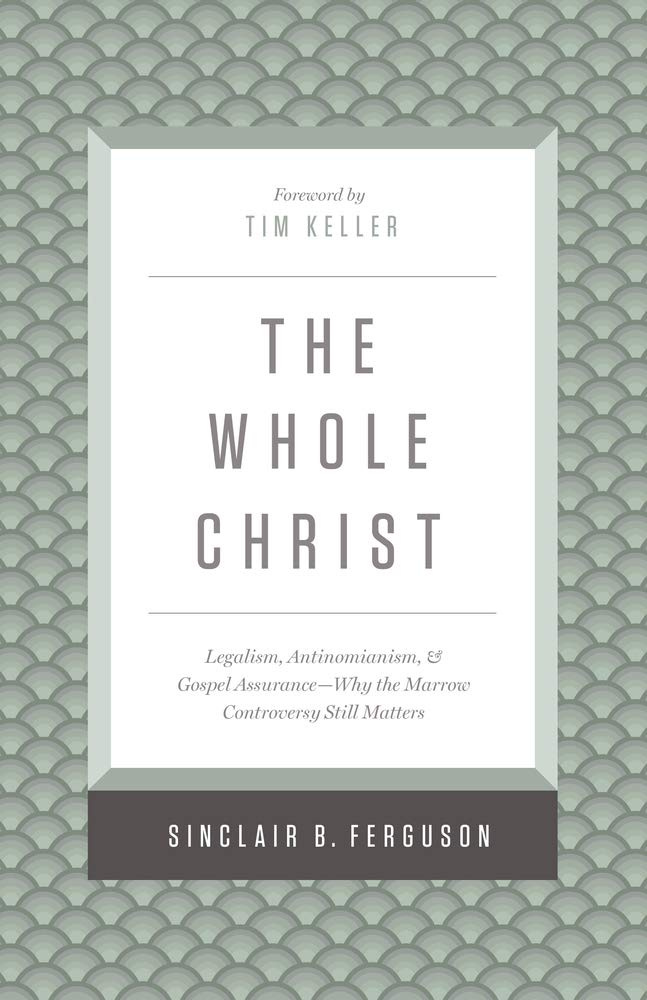If you’re a Christian, you’ve probably been there.
It might be at a social gathering with work. The conversation turns to the seemingly never ending cycle of bad news stories on BBC News. One of your colleagues looks at you and says ‘Hey, you’re a Christian. What do you think God makes of all this?’
Perhaps it’s when you’re walking through the park with a child. The sun’s shining. The leaves are green. The flowerbeds are in full bloom. And you tell the little one in the pram that God is amazing because he made all of it. But, after a few seconds of silence, you hear a little voice ask, ‘If God made all these things, where is he?’
Maybe it’s at a mid-week Bible study and you're leading the discussion. Not long into the study people are discussing Jesus' death on the cross. So far, so good. But then one of the group asks about how God could send his son to save people who were living in rebellion against him. ‘I thought God was meant to be just', they say. 'That doesn’t sound like justice. More like a contradiction.’
If you’ve been following Jesus for much time, you’ll probably have been asked questions like these. Good questions. Heart-felt questions. Thoughtful questions. It's just that they're also questions that can stop us dead in our tracks.
Running for cover
I've been asked more of these sorts of questions than I can remember. But it doesn't matter how often they come up, my instinctive reaction is usually the same.
Fear.
I might try and cobble together a half-baked answer. I might try and move the conversation on. I might try and say something about how, because God is God, there are some things we can't understand about him. Yet, it doesn’t matter how I try to spin it, under the surface my heart is running for cover.
Why? Well, as I try and put the conversation into the rear view mirror, there’s often a nagging doubt at the back of my mind. And it’s this: maybe the person I am talking with is onto something. Maybe the Christian faith doesn't add up quite so well after all?
What we don't know can't hurt us
Being asked probing questions about our faith is no bad thing. In fact, it's a very good thing. Not only is it a sign that we’re living out our faith before others, it also provides an opportunity to think about what we think. Because, as hard it is to admit, I am just as capable of being wrong as the next person.
The only problem is that, when I come away from a tricky conversation, I don't always take the opportunity it provides. I don’t look into things further. Instead, I can find myself only wanting to stick my head in the sand.
When I was growing up, I remember weighing up whether to ask my parents something because I wasn't sure of the answer I would get back. If I didn't ask, at least I wouldn't be told something I didn't want to hear.
We can try doing the same thing with God. When someone asks us a question about our faith that we haven't thought about before, we can shy away from looking into it because we're scared of what we might find. What we don't know can't hurt us, right?
The answer to every question
As I say, this is something I've gone through countless times. But of all the issues with me burying my head in the sand, the biggest one is that it doesn't fit with the faith I profess. Because Christianity is all about Christ. And, time and time again, the Bible tells us that all reality is ultimately about him.
For example, when the Apostle Paul is explaining to Christians in the ancient city of Colossae why he works so hard in his ministry, he tells them that his goal is that they and other believers
may be encouraged in heart and united in love, so that they may have the full riches of complete understanding, in order that they may know the mystery of God, namely Christ, in whom are hidden all the treasures of wisdom and knowledge (Colossians 2:2-3).
Christianity is not like the manifesto your favourite political party will be producing in the run up to the UK general election next year. It's not as if God has sketched out the main points in the gospel, but is still yet to work out the finer details. No, in the gospel, God has given us Christ. And it is in him that every question ultimately finds its answer.
Christianity is all about Christ. And time and time again the Bible tells us that all reality is ultimately about him.
The upshot of all this is that we don't need to be fearful when someone asks us a question about our faith that we haven't thought about before. We don't need to put our fingers in our ears. Instead, we can look into even the toughest questions with confidence, excitement even. Whilst God doesn't promise to give us complete answers to every question that we might ever get asked about the Christian faith, we can have complete knowledge of the things that we (and our questioners) need to understand in order to know Christ. And this means that, when we do investigate further, the things we can find out will only warm our hearts towards him.
The privilege of theology
This is perhaps the greatest privilege of doing theology. When we look into a tricky question about suffering or God’s invisibility or Jesus’ death on the cross, we can do so with the confidence that it will grow our faith. And that was something that happened to me on the first day of my PhD.
This month I have begun working on my research properly. In my PhD I am going to be looking at what Stephen Charnock (1628-1680) thought about Jesus and how that impacted other areas of his theology. So after some umming and ahing about where to begin my investigations, I decided to start off by finding out what other people in the 1500 & 1600s thought about Jesus. And as I was reading about what French theologian, John Calvin (1509-1564), thought about him, I came across a heart-warming example of just what I’ve been talking about.
Cross-shaped conundrum
Calvin’s most famous book is his Institutes of the Christian Religion. He wrote it as an introductory textbook on all the main areas of Christian teaching. The Institutes were something of an ongoing project for Calvin. He published five editions in his lifetime and the final edition, which appeared in 1559, has become one of the most influential works in Protestant theology.
After starting his book by talking about ‘God the Creator’, Calvin goes on to discuss ‘God the Redeemer’. Over the course of 300 pages, the French theologian explains how God has gone about saving people who have rejected him. Perhaps unsurprisingly, Calvin’s discussion builds up to Jesus. And, in particular, Jesus’ death and on the cross. He writes,
This is our acquittal: the guilt that held us liable for punishment has been transferred to the head of the Son of God. We must, above all, remember this substitution, lest we tremble and remain anxious throughout life - as if God’s righteous vengeance, which the Son of God has taken upon himself, still hung over us.
For Calvin, Christ’s substitutionary death was central to how God had saved sinners. Not only that, it was also central to how Christians experience that reality in their everyday life.
But that raised a question. And it was the same tricky question that your friend asked at that hypothetical mid-week Bible study we mentioned earlier. If God was really so angry at someone because of their sin, how could God be moved from anger to mercy by the offering made by his Son?
Calvin was aware that it might look like a contradiction. He recognised that passages like Romans 5:10 do talk plainly about how we were God’s enemies until we were reconciled to him through the death of his Son. Yet, where we might have been tempted to stick our head in the sand, the French theologian chose to press in to the conundrum. And what he found not only answered his question, but did so in a way which only further warmed his heart to Christ.
The bigger picture
As Calvin searched the Scriptures, he came to realise something: passages like Romans 5:10 didn't tell the whole story. Yes, they played a valuable role in shocking our hearts out of their slumber and awaking them to what God had done in Christ. But, as important as that was, the wrath of God was not the ultimate backdrop against which we should understand Christ’s death on the cross.
After all, only two verses before in Romans 5:8 Paul had told his readers that God demonstrated his love for his people by sending Christ to die for them, even while they were still sinners. God's love for his people came before their rebellion against him. And this meant that God’s love for his people came before his anger for their sin. Quoting the fourth century theologian, Augustine (354-430), Calvin explained,
Therefore, he loved us even when we practiced enmity toward him and committed wickedness. Thus in a marvelous and divine way he loved us even when he hated us. For he hated us for what we were that he had not made; yet because our wickedness had not entirely consumed his handiwork, he knew how, at the same time, to hate in each one of us what we had made, and to love what he had made.
Simply put, Calvin was saying that God did not love us because he first sent his Son to die for us. Rather, he sent his Son to die for us because he first loved us.
A crucial distinction
The difference between those last two sentences might seem to you like trying to split hairs. But it’s actually incredibly important. Because not only does knowing that God's love came before Christ’s death help with the tricky question of how God could be moved to show mercy to those who had rejected him, it also helps us with the tricky business of living life for him.
In his book The Whole Christ, Sinclair Ferguson shows the havoc that wreaks through our Christian lives when we get the love of God and the death of Christ the wrong way round. This is because, when we say that the cross of Christ is the reason that God loves us, we imply that behind the cross God may not actually love us at all.
That is not the kind of gospel that is needed by broken people like you and me. As Ferguson notes,
When people are broken by sin, full of shame, feeling weak, conscious of failure, ashamed of themselves, and in need of counsel, they do not want to listen to preaching that … fails to connect them with the marrow of gospel grace and the Father of infinite love for sinners.
No, says the Scottish pastor. ‘It is a gracious and loving Father they need to know.’
Fear of missing out
We all come up against tricky questions about our faith from time to time. After all, if it happened to John Calvin, it’s certain to happen you and me. So the next time a conversation catches you off guard, don't feel like you need go running for cover, scared of where it might lead. Rather, take confidence. Your faith is in Christ. And in him are hidden all the treasures of wisdom and knowledge. So, as you press into the question, remember that the things you can find out will only warm your heart to him.
If you’ve read this newsletter before, you’ll know that I like to end by suggesting a few places for people to go if they would like to dig a little deeper into the things I’ve just shared. This seems especially apt, given the topic of today’s installment.
So, if you would like to find little out more about John Calvin, why not watch this 5-minute video biography of Calvin’s life which American Pastor John Piper has shot in Geneva?
For those that would like to think a bit of more about why it is so important that God loved us before he sent Jesus to die for us and not the other way round, Sinclair Ferguson has given this great talk on his great book.
And, of course, if you wanted to go one better, there is the book itself. I read The Whole Christ last year, and I thought it was probably the best book I read in 2022.







